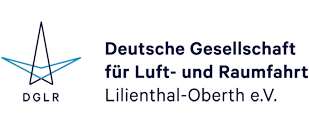DGLR-Publikationsdatenbank - Detailansicht
Autor(en):
M.-M. Temme, J. Meier, R. Hunger, M. Finke, R. Abdellaoui, S. Shetty, A. Cicvara
Zusammenfassung:
A severe shortage of air traffic controllers (ATCO) poses new challenges for air navigation services. They are only allowed to work in sectors where they have received certification including successful on-the-job training. This paper presents a method that makes it possible to aggregate the work experience of controllers in recent months and assess how efficiently and safely they could organize air traffic in another sector of upper airspace without a full traditional OJT. Rising air traffic volumes coupled with a simultaneous decline in qualified applicants for the air traffic controller profession means that some sectors cannot be adequately staffed for capacity reasons, particularly in peak seasons with many flight movements. New ATCOs receive a widespread theoretical training, after which they undergo extensive on-the-job training to get a new sector endorsement. After successfully completing this training, they are allowed to work in this sector as a partner in a team consisting of an Executive and a Planner controller. They must complete several months of training in each additional sector or sector group in which they are to be deployed in order to obtain a corresponding endorsement. To maintain these unit endorsements, they must complete regular endorsement maintenance tests and accumulate proven working hours. These requirements would practically mean that every controller is limited to a specific number of sectors, as they would otherwise have to dedicate a majority of their annual working hours exclusively for endorsement maintenance. However, after completing their training and working at own responsibility in a sector, controllers should, in principle, be able to work safely and responsibly in any comparable sector with a much shorter training of a few days, maximum weeks, as most of the needed competencies have already been trained and developed. In order to obtain a metric for the comparability of sectors in connection with the most recent professional experience of a controller, a calculation rule was developed in the SESAR project IFAV3 that allows both the creation of an assessment vector for current experience and the mapping of these experience values to a sector for which a certain volume of traffic is predicted at a defined time. The developed assessment procedure Upper Airspace Skill Level Index (UASLI) now makes it possible to generate an estimate for each ATCO of how well they will cope with the expected traffic in a sector for which they have not received a full traditional on-the-job training. Particular challenges in the assessment are, for example, traffic loads that fluctuate significantly over time or experience gained a long time ago, which must be weighted accordingly in the index. The result is an individual experience-vector consisting of seventeen indices, which can now be compared with an expectation-vector based on the predicted traffic data for a sector and calculated using the same functions. An automated comparison of these vectors provides supervisors with a tool for finding ATCOs with sufficient experience and competence who could be deployed in the event of a temporary shortage of ATCOs to any sector. Additionally, IFAV3 also deals with the legal adjustments that would have to be made for the deployment of controllers in non-endorsed sectors. The results of this experience validation presented here, provide valuable insights into the feasibility and potential benefits of a more flexible endorsement system, its impact on the work of air traffic controllers, and contribute to the further development of the upper airspace air traffic control systems.
Veranstaltung:
Deutscher Luft- und Raumfahrtkongress 2025, Augsburg
Verlag, Ort:
Deutsche Gesellschaft für Luft- und Raumfahrt - Lilienthal-Oberth e.V., Bonn, 2025
Medientyp:
Conference Paper
Sprache:
englisch
Format:
21,0 x 29,7 cm, 10 Seiten
URN:
urn:nbn:de:101:1-2511211156163.011539964751
DOI:
10.25967/650088
Stichworte zum Inhalt:
competency-based rostering, flexible endorsement
Verfügbarkeit:
Download
- Bitte beachten Sie die Nutzungsbedingungen dieses Dokuments: Copyright protected
Kommentar:
Zitierform:
Temme, M.-M.; Meier, J.; et al. (2025): Development of Technical and Procedural Requirements to Support a System of Flexible Endorsement for Upper Airspace Air Traffic Controllers. Deutsche Gesellschaft für Luft- und Raumfahrt - Lilienthal-Oberth e.V.. (Text). https://doi.org/10.25967/650088. urn:nbn:de:101:1-2511211156163.011539964751.
Veröffentlicht am:
21.11.2025
